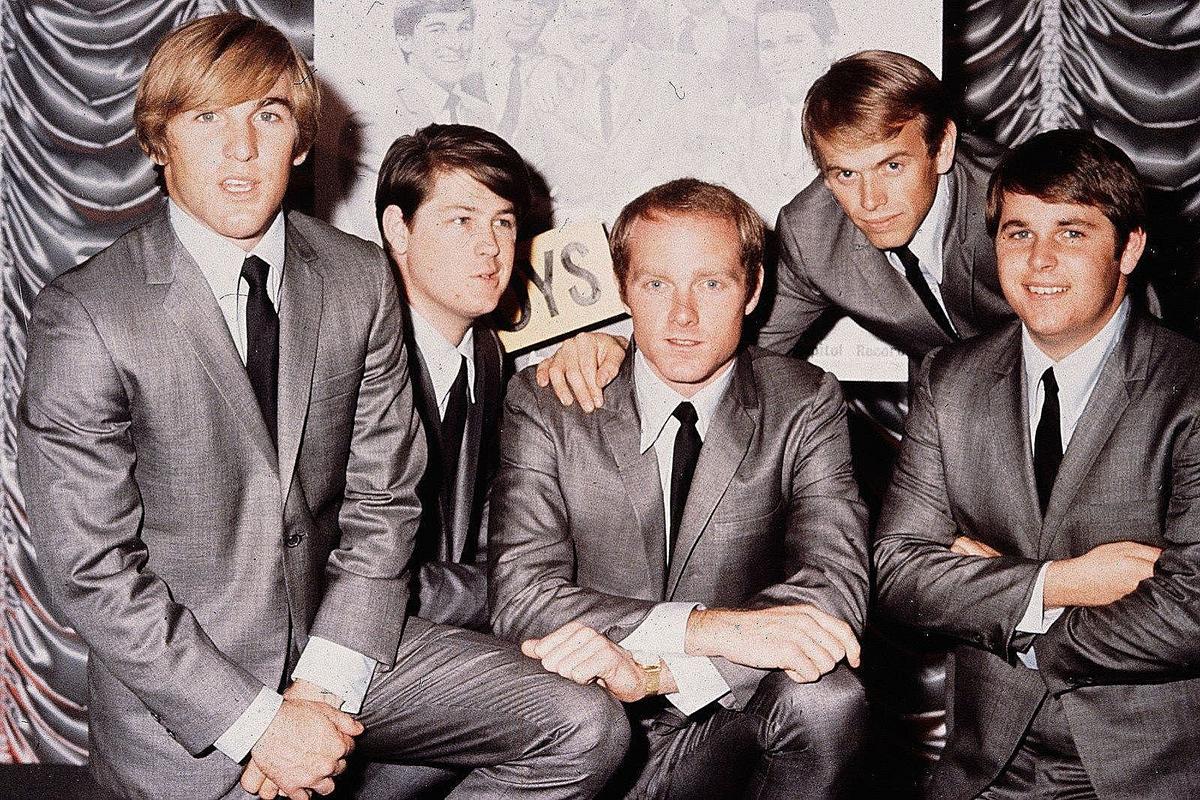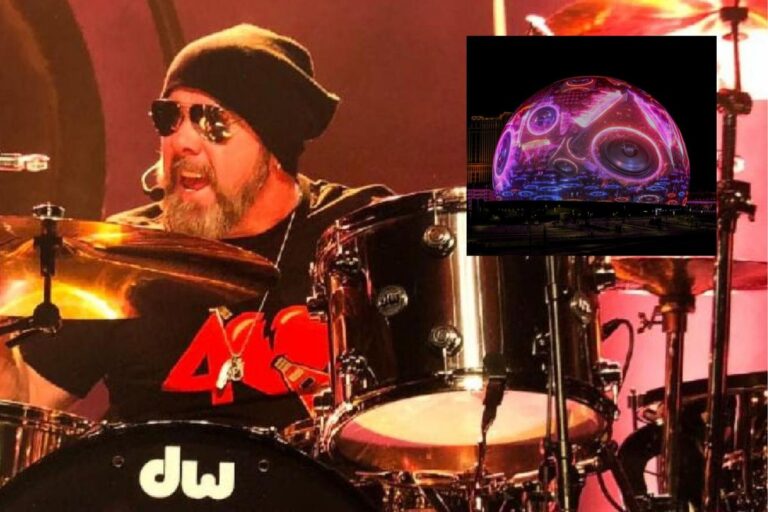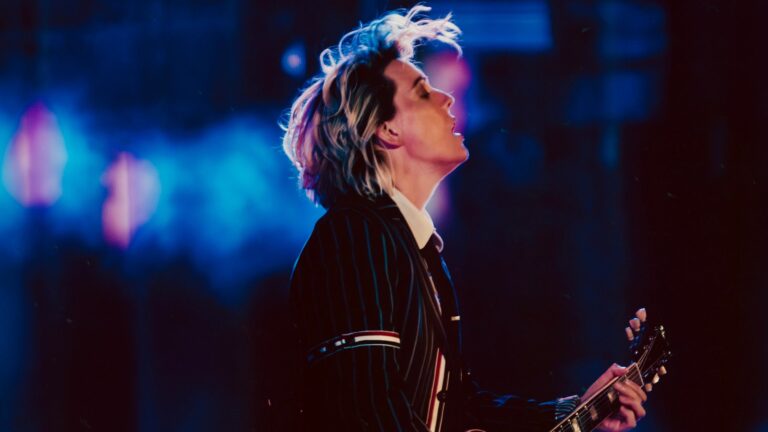The early years for Al Jardine of the Beach Boys were challenging ones. Though they would write a lot of car songs, the guitarist himself, didn’t have one in his teenage years prior to joining the band.
So as he was starting to hear music and become a fan of certain groups, he wasn’t going to concerts. “I never went anywhere to do anything,” he tells UCR now. “I mean, I didn’t have a car [and] in L.A. if you didn’t have a car, it was over.”
But he did have the radio, which was an invaluable portal into the world that would become his own soon enough. He was hearing music that was mostly instrumental, from groups like the Ventures. As he began to pick out the sounds in a more specific way, identifying that he was hearing a Fender guitar, for example, the pieces of the puzzle began to come together.
The fact that he wasn’t seeing any of the bands that he was hearing on the radio would have an interesting side effect. “It’s too bad. I would love to have been able to [go to concerts] and just hear some great rock and roll or folk music,” he says now. “I ended up doing folk music as a result, because I could just do that at home. [I] had fun playing my acoustic guitar. Buying a Fender [or even] buying a guitar, in those days would have been a luxury item. You know, I also would have had to have an amplifier. It’s a whole investment. My family was great, but we didn’t have a lot of money.”
One aspect of surf music is that prior to the Beach Boys, it was a largely instrumental genre. Producer/engineer Mark Linett and author/historian John Blair both noted in a separate conversation although this stage of surf music was relatively short-lived, it was an important time period for those who were involved in it.
Listen to the Chantays’ ‘Pipeline’
“For the three or four years that it existed pretty strongly in the early 60s, it was a school house, if you will, for certain musicians that later went on to do much bigger things,” Blair explains. “Leon Russell comes to mind, and so does Jim Messina. These people were teenagers when I was and they were playing in surf bands. They developed skills as a result of that recording and performing. They parlayed those skills into their music careers later on in life, and did quite well.”
Of course for every band and musician that managed to make that transition, there were many others who didn’t get the same glory, even though they served as key influences and helped to lay crucial groundwork.
On April 1, 1995, Linett found himself at the Lighthouse Cafe in Hermosa Beach, California, for an extensive afternoon of surf music, performed live by members of the Surfaris, the Chantays, Los Straitjackets, the Turtles, Paul Johnson & the Packards and others. It’s a happening that music fans today would give their left arm (now, let’s not get dramatic) to attend.
Thankfully, the Grammy-winning producer and engineer was in attendance with his friend, Cars guitarist Elliot Easton and decided to record the day’s performances. 30 years later, The Legends of Surf Guitar, co-produced by Linett and Blair, came out of that experience. It’s a glorious time capsule, released at long last by Oglio Records, which offers fans the chance to go back.
Listen to the Legends of Surf Guitar Perform ‘Wipe Out’
“I think the fact that it was surf music may have been part of why I decided to go record it on a whim,” he says now. “I don’t remember how I learned about it. The fact that Elliot went with me, maybe he heard about it and told me. My natural reaction, if he had, would have been, ‘Huh! I wonder if this would be something fun to record. I had just gotten one of the first eight-track digital recorders, so I used to go out and record stuff all of the time. I [also] had a Stevens 16-track in a portable case, which was still somewhat significant. I could pack an entire 16-track remote recording rig in the back of my Volvo station wagon.
The recordings showcase a rare summit of the ’60s originators with the bands that led a surf music revival subsequently in the ’70s and ’80s. The momentum of the latter period sparked the birth of groups like Los Straitjackets and a fresh interest in the genre. The effects of that spooled out through all sorts of different mediums, including the silver screen and the music used as a soundtrack for movies like Pulp Fiction.
READ MORE: Did Kurt Cobain Almost Have a Part in ‘Pulp Fiction?’
“Surf tunes like ‘Wipeout’ and ‘Pipeline’ were the first songs I really learned to play, so this music has always been close to my heart,” Easton remarked. Having participated in the day’s events, he contributed his memories as part of the liner notes for the release, alongside Jardine. “Seeing The Chantays, The Surfaris, Davie Allan and others live was unforgettable — a memory I’ll always cherish. These sounds take us back to a simpler, more carefree time of cars, girls, beaches, and of course, surf music!”
For Jardine, hearing the recordings spurs a lot of memories, including the time the Beach Boys shared the stage with surf guitar legend Dick Dale at the Rendezvous Ballroom in Orange County. But that came much later. First, it was indeed the radio that helped introduce Jardine and the other members of the Beach Boys to a musical genre that they would take in a new direction.
Listen to Dick Dale’s ‘Miserlou’
“The radio was where we heard those first songs, that were instrumental,” he remembers during the conversation with UCR. “We were the first band, I think, to put words to surfing music. That evolved from the instrumentals that we were hearing on the radio.”
The fledgling group quickly got some interesting doses of reality as they were getting going. “When the Beach Boys started, you’d think Fender would have given us instruments, right? They made us buy them,” he laughs. “Our manager, Murry Wilson, bought all the Fender gear so we could move onto the next level.”
Like any developing group, he says that there was a pretty natural period of evolution, though the things that each of the future members of the Beach Boys had access to differed. “Carl [Wilson] was taking guitar lessons down the street with David Marks from a guy named Johnny Maus, who later became had his own famous band in England [Maus changed his name to John Walker and co-founded the Walker Brothers in the early part of the ’60s], of all things,” he explains. “So [they] kind of evolved from even just taking guitar lessons from a guy down the street. I didn’t have that luxury and I didn’t take lessons, but Carl and David did.”
But Jardine is selling himself a bit short, because whatever head start the Wilsons might have had, he got his own education playing with early groups like the Islanders, which he calls, “just a local high school group that had fun imitating the Kingston Trio.” It was a stint which among other things, put it in his head that he eventually wanted to record the song “Sloop John B” with the Beach Boys. “It was quite a while after we became recording artists,” he notes. “But we finally got there.”
Watch the Beach Boys’ ‘Sloop John B’ Video
His time with the Islanders moved the young guitarist forward in other ways. Among them, he became comfortable with singing harmonies and saw an opportunity. “I told Brian [Wilson] at school, I said, ‘I want to form a band. I want to get together and let’s do something.’ Because of my Islanders experience, I was pretty good with harmony and stuff like that and I was a little frustrated [with the Islanders]” Jardine remembers. “He said, ‘Okay, come on over to my place. I’ll introduce you to my brothers and my cousin [Mike Love] sings really good — he has a real bass voice and my little brother plays a guitar. That’s how it started, just by the experience I had had earlier with my own band.”
It’s hard now to imagine that Jardine and Brian Wilson had some of their first real experiences not with music, but because they were on the same football team. “I was pretty big then, [fairly] stocky,” he offers. “Brian was like a string bean and we just basically were on the same team together. We didn’t really converse much about music at all, come to think of it. That came later. I didn’t even know [the things he was doing musically until] after graduation when we got together and had that conversation about starting a band.”
He marveled at the vocal blend within the group that was already there before he joined. “Well, that was Brian’s specialty, you know. I was already pretty conversant with three-part harmony, but he brought an extra one or two parts along with him,” Jardine chuckles. “It was very impressive and exciting to to be able to sing with people who could sing for a change, because it was hard to find good singers [prior to that]. My folk group was great, but this was a whole other level.”
Of course, the further that the Beach Boys got into the decade, they would eventually move into deeper subject matter, something that continued into the ’70s. It’s been good to see some of the albums from the later period like 1972’s Carl and the Passions – “So Tough” and 1973’s Holland album get their due as part of the expansive box sets that have been coming out in recent years.
READ MORE: Top 10 Post-‘Pet Sounds’ Beach Boys Songs
Next up in the rotation, a box set will reportedly put the spotlight on the period covering the three albums that the band released between 1976 and 1978, including 1977’s The Beach Boys Love You. “There’s a lot of undiscovered gems in all of them,” Jardine agrees. Fans have been exposed to the material again for the first time in a long time this past summer and currently here in the fall, thanks to tour dates that he’s playing with Brian Wilson’s former touring group. Their set has featured a heavy dosage of songs from The Beach Boys Love You.
Listen to the Beach Boys’ ‘Roller Skating Child’
It’s a section of the show that veers way into deep cut territory in a fashion that most fans never could have imagined. “We’re pretty lucky to be able to to sort this all out,” he says. “The [current] Beach Boys band that’s out there doesn’t [really do this kind of thing]. They do some of the deeper cuts, but they don’t specialize in it, let’s put it that way. So we’re really digging deep with the with the Pet Sounds band.”
The latest dates run into December and there are already shows popping on the calendar for 2026 as well. Jardine, as he often is, was modest as we spoke about the long-term prospects for his outing with Wilson’s band. “It’s a little lean right now because we got started a little late, so we’re not we don’t have a lot of dates,” he said then. “We have some high profile dates, and so hopefully we’ll have some good reviews.”
The Beach Boys Albums Ranked
There’s way more to the band that surfing, cars and girls.
Gallery Credit: Michael Gallucci



